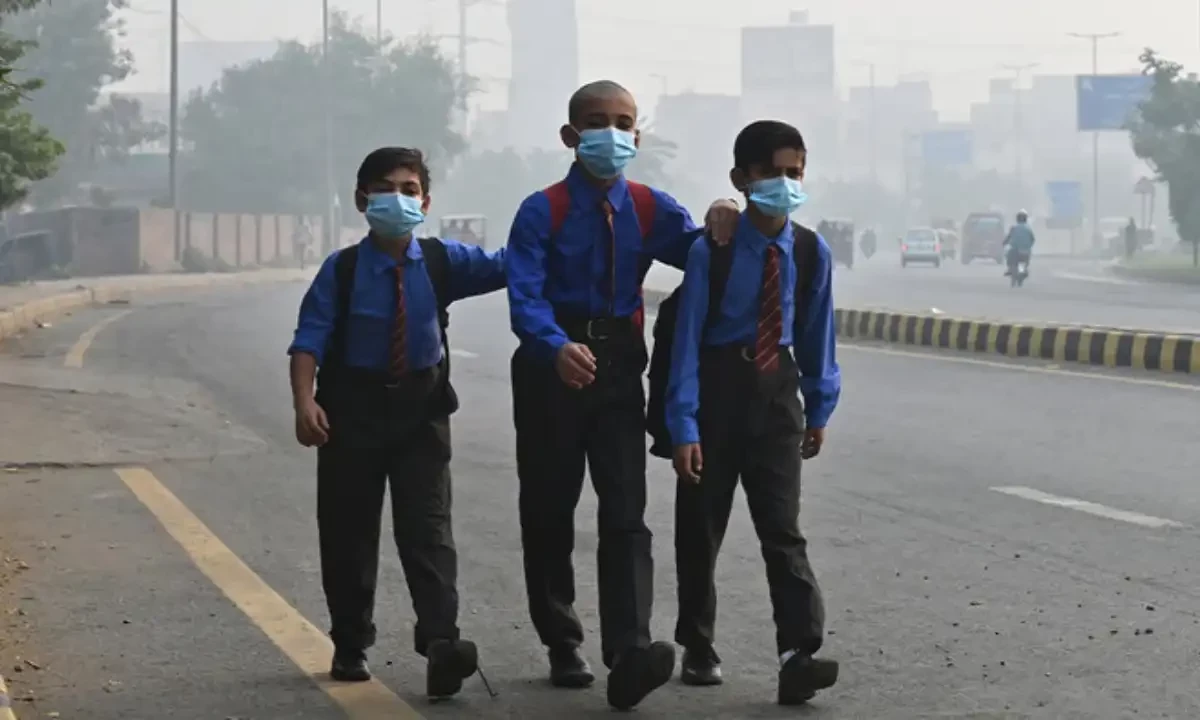Amid severe smog and toxic air pollution, Multan, Punjab’s largest southern city, has recorded unprecedented AQI levels, signaling an urgent public health crisis. With an Air Quality Index (AQI) reading of 2,553 in Multan alone, the city’s pollution levels have reached a hazardous state, far surpassing safe limits. In response, the Punjab government has enforced closures of schools, parks, and museums across impacted regions to protect citizens from adverse health effects.
Smog Crisis: Multan and Surrounding Cities
In Multan, AQI levels have not only breached the 300 “hazardous” threshold but have surged to levels above 2,500, a reading 500 times higher than the World Health Organization’s recommended safe limit. Other major cities, including Lahore, Faisalabad, and Gujranwala, are also facing dangerously high pollution levels, but none quite as critical as Multan’s, making it the epicenter of the current air quality crisis.

Health Impacts of Smog on Residents
The health impacts of Multan’s extreme AQI levels are severe, with high concentrations of PM2.5 particles posing significant risks to respiratory and cardiovascular health:
Respiratory Disorders: Smog exacerbates asthma, bronchitis, and other respiratory conditions. PM2.5 particles in Multan’s air can penetrate deeply into the lungs, increasing the risk of inflammation and reduced lung function.
Cardiovascular Complications: Exposure to such high levels of air pollution is linked to an elevated risk of heart attacks and high blood pressure, especially in individuals with existing heart conditions.
Irritation and Immune System Compromise: Residents report eye and throat irritation, likely due to sulfur dioxide and nitrogen oxides in the air. Prolonged exposure also weakens the immune system, heightening susceptibility to infections.
Essential Safety Precautions
In light of the hazardous air quality, it is crucial for residents, particularly in Multan, to take safety precautions to reduce health risks:
Limit Outdoor Activities: Stay indoors as much as possible, especially during peak pollution hours in the morning and evening.
Use N95 Masks Outdoors: Wear N95 masks to reduce inhalation of fine particles when stepping out, which is essential for high-risk groups.
Indoor Air Purifiers: Use HEPA air purifiers at home to help reduce indoor pollutants, providing a safer environment indoors.
Monitor AQI Levels: Regularly check air quality apps or websites to stay informed on AQI levels, planning outings accordingly.
Avoid Strenuous Activities: Refrain from high-energy outdoor activities to reduce lung strain from polluted air.
Close Windows and Doors: Keep windows closed to prevent toxic outdoor air from entering, especially during peak pollution hours.
Conclusion
Multan’s record-breaking AQI levels underscore a critical need for public awareness and preventive action. While immediate precautions are essential for safeguarding health, addressing the root causes of pollution through stricter regulations and sustainable practices remains a long-term solution. For now, residents are encouraged to take these precautions seriously and stay informed on AQI changes to navigate this health crisis safely.


